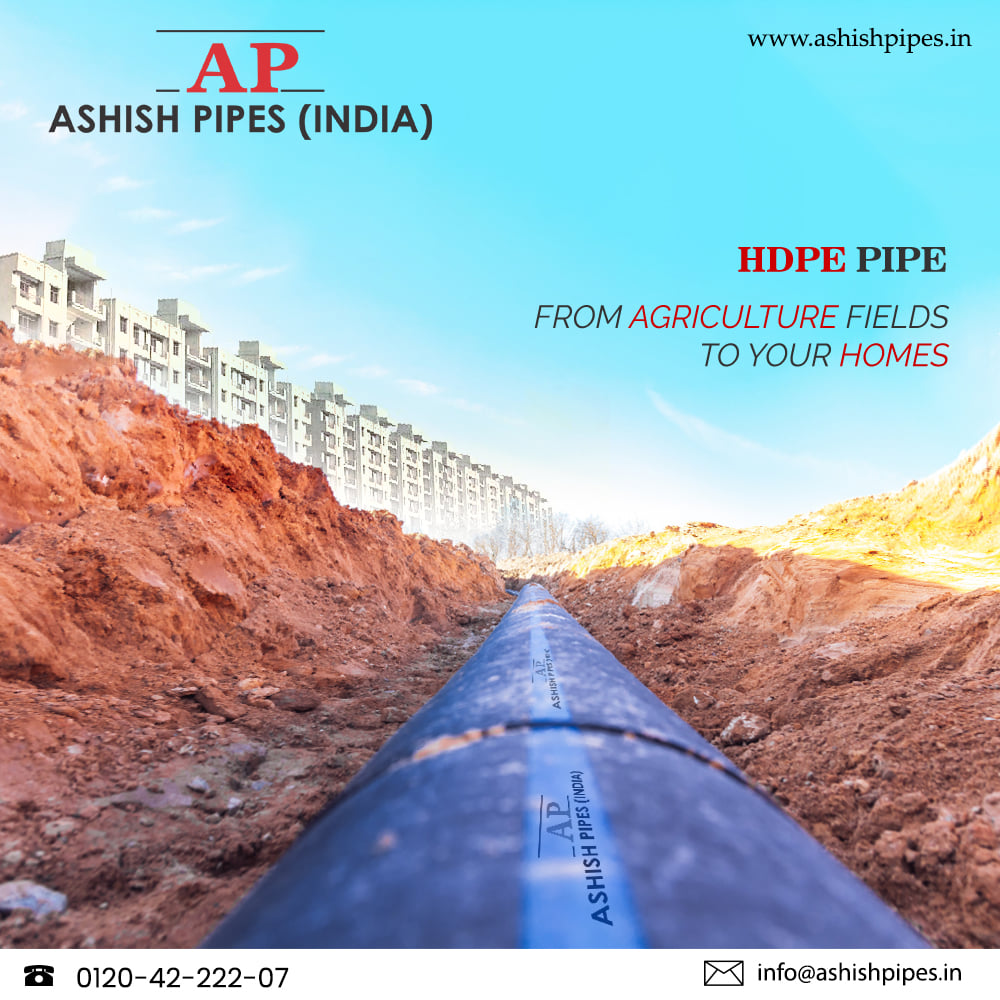
HDPE pipes are flexible plastic pipes. They are primarily used to transport fluids and gases in the industrial and agricultural industries. These are ideal substitutes for outdated concrete or steel pipelines.
These are made of high-density polyethene and are extremely impermeable. This property qualifies it for use in high-pressure pipelines.
You can use HDPE in a variety of ways.
Water & gas mains, sewer main, rural irrigation, fire system supply lines, drainage pipes, and other applications use them. Because these pipes can be melted and reformed, they are durable, flexible, and long-lasting.
Features:
HDPE pipes are ideally suited for agriculture and irrigation applications due to their intrinsic characteristics. Some of its most notable characteristics include hardness and resistance to powerful chemicals. They also feature such as low weight, cost-effectiveness, and durability. These features contributed to its ever-increasing demand.
At or below 20 degrees Celsius, HDPE Sewage Pipes can be bent on-site to a radius twenty-five times more than a conventional pipe.
These, unlike ferrous piping solutions, do not corrode or rust.
As a result, they never obstruct flow by building up internal resistance as fluids like water travel through them.
What makes them such a good fit for agricultural and irrigation uses?
There is no piping fatigue since HDPE pipes are extremely fatigue resistant.
Unlike plastic pipes, they can handle the infrequent and recurring surges of water flow that are prevalent in water distribution systems. These pipes are not hard but, they are ductile.
There is no water loss because HDPE pipes have no leaks.
HDPE pipes can be linked using heat, but other piping systems are very susceptible to water leakage due to the sorts of connections they use. As a result, the joints are permanently leak-free, allowing us to conserve our most valuable resource.
Convenient installation
HDPE pipes' flexibility, along with their tensile strength, make them ideal for trenchless installation.
This technique allows them to build under the river, lakes, ponds, and creeks with minimal inconvenience to the public.
HDPE pipes are- extremely durable, as they do not corrode or rust.
It extends their life and saves money in the long run.
HDPE pipes become the best solution dependent on consumption, installation, and project design, with a service life ranging from 50 to 100 years.
Apart from the physical characteristics described above, HDPE pipes have a low environmental impact.
Even during the production process, they do not generate dangerous quantities of pollutants. These can also be easily recycled for non-pressure pipe applications.
HDPE pipes' superior performance guarantees that consumers receive clean and safe drinking water. While other pipes have a significant risk of leaks, which means more electricity is used to process and pump water, HDPE pipes have 0% leakage. It lessens the electricity demand, allowing users to save money on utility bills. These factors combine to make HDPE an excellent choice for agricultural and irrigation applications.
































